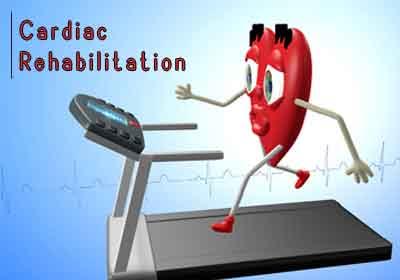- Home
- Editorial
- News
- Practice Guidelines
- Anesthesiology Guidelines
- Cancer Guidelines
- Cardiac Sciences Guidelines
- Critical Care Guidelines
- Dentistry Guidelines
- Dermatology Guidelines
- Diabetes and Endo Guidelines
- Diagnostics Guidelines
- ENT Guidelines
- Featured Practice Guidelines
- Gastroenterology Guidelines
- Geriatrics Guidelines
- Medicine Guidelines
- Nephrology Guidelines
- Neurosciences Guidelines
- Obs and Gynae Guidelines
- Ophthalmology Guidelines
- Orthopaedics Guidelines
- Paediatrics Guidelines
- Psychiatry Guidelines
- Pulmonology Guidelines
- Radiology Guidelines
- Surgery Guidelines
- Urology Guidelines
CRAVE Study: Cardiologists are aware of the benefits,indications of cardiac rehabilitation but reluctant to refer patients

Attendance in cardiac rehabilitation is associated with improved outcomes in morbidity and mortality in patients with heart disease. Despite the burden of evidence, it seems as if the medical and cardiology community in general has not fully embraced its use and utilization rates are still low. Low referral and endorsement rates by doctors lead to underuse and has been implicated as an important and powerful predictor of enrollment.
Investigators conducted a survey to see what doctors who specialize in cardiology are thinking with regards to referring patients. In the CRAVE study(1)(Cardiac Rehabilitation Attitudes and Viewpoint on Engagement) published in the Journal of Clinical and Preventive Cardiology, the investigators found some insight regarding the perceptions of cardiac specialists in the Philippine Heart Center, which is the national cardiology referral center in the Philippines, a low to middle income developing country in Southeast Asia.
One hundred four physicians answered a survey that included a hypothetical case to elicit responses regarding cardiac rehabilitation referral and practices. The mean age of the participants was 41.1±11.0 years, 62 (59.6%) were male and they had been in private practice for an average of 8.7 years. Eighty nine (78.9%) stated that they will refer the patient for cardiac rehab while 22 (22.1%) will not refer and intended to manage the patient in an individualized manner. When asked for the reasons why they will refer, 10 (12.2%) stated because of a detailed and systematic approach to exercise prescription and guidance, 3 (3.6%) reported that it is due to its comprehensive and multifactorial approach, 15 (18.3%) cited improvements in outcomes and mortality, 2 (2.4%) said that all cardiac patients should be referred, another 2 (2.4%) said that as long as the patient can afford it, 3 (3.7%) cited because of better follow‑up and compliance, 8 (9.7%) said that it enables patients to meet secondary prevention and lifestyle goals, 9 (10.9%) said because it is a Class I indication, and 21 (25.6%) did not give any reasons. When asked why they would not refer, 3 (13.6%) said that they will instruct patient first but maybe forced to refer after, 5 (22.7%) said that it just entails additional cost, another 5 (22.7%) stated that they can treat and advise patients themselves, 2 (9.1%) said that there is no need for CR, 3 (13.6%)said that they are unsure of cost effectiveness, and 4 (18.1%) declined to give any reasons.
With regards to the most important factors affecting referral financial limitation was the reason in 36.5%. Proximity and accessibility to the center (7.7%) and combined financial and geographic location (7.7%) were also cited reasons. Only 1 respondent (0.9%) indicated that it's a Class I indication while two respondents (1.9%) stated because good outcomes of referred patients being the most important factors of referring.
Physicians also answered a Likert type scale detailing certain attitudes towards cardiac rehab referral with interpretations of the responses ranging from strongly agree, agree, neutral, disagree and strongly disagree. 61.4% strongly agree that clinical practice guidelines promote referral to cardiac rehab. Majority of the respondents disagreed that it is inconvenient to make a referral to cardiac rehabilitation (95.4%), 98.5% disagree regarding being skeptical of the benefits of cardiac rehabilitation, 99.6% disagree that the available cardiac rehab programs are of poor quality and 99.7% disagree in having a bad experience with the cardiac rehabilitation program. However, only 54.8% stated that they generally refer patients, with 65.9% agreeing that reimbursement policies are a financial disincentive to cardiac rehabilitation referral. When asked if their colleagues generally refer patients to cardiac rehab, the collective response (77.4%)was mostly neutral. Additionally, 74.7% agreed that they would rather manage the patient’s secondary prevention themselves.
The authors note that the role of the referring physician is important and there is a need to promote knowledge regarding referral and utilization of cardiac rehabilitation among healthcare providers so eligible patients will be able to optimize the benefits of participating in a cardiac rehabilitation program.
You can read the Full study by clicking on the following link
Cuenza LR, Gacrama EN, Tan K, Quito BJ, Ebba E. Physician factors affecting cardiac rehabilitation referral amongcardiac specialists: The Philippine Heart Center CRAVE study (Cardiac Rehabilitation Attitudes and Viewpoints on Engagement). J ClinPrevCardiol 2016;5:44-50.

Disclaimer: This site is primarily intended for healthcare professionals. Any content/information on this website does not replace the advice of medical and/or health professionals and should not be construed as medical/diagnostic advice/endorsement or prescription. Use of this site is subject to our terms of use, privacy policy, advertisement policy. © 2020 Minerva Medical Treatment Pvt Ltd